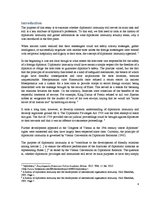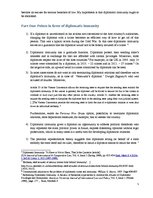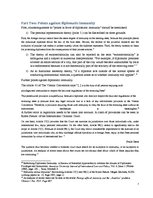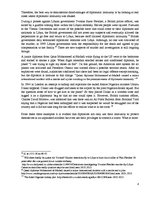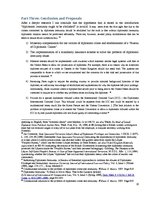-
Diplomatic Immunity: to Retain or to Abolish?
| Nr. | Sadaļas nosaukums | Lpp. |
| Introduction | 3 | |
| Part One: Points in favor of diplomatic immunity | 4 | |
| Part Two: Points against diplomatic immunity | 6 | |
| Part Three: Conclusion and Proposals | 9 | |
| List of references | 10 | |
| Internet resources | 10 |
Part Three: Conclusion and Proposals
After a deeper research I can conclude that the hypothesis that is stated in the introduction “diplomatic immunity ought to be abolished” is invalid. It may seem from the first sight that due to the crimes committed by diplomats immunity should be abolished but the truth is that without diplomatic immunity diplomatic mission cannot be performed efficiently. There are, however, several policy modifications that can be taken to ensure fewer violations law.
1) Monetary compensation for the victims of diplomatic crime and establishment of a "Bureau of Diplomatic Claims".
2) The implementation of a mandatory insurance scheme to solve the problem of diplomatic immunity abuse.
3) Bilateral treaties should be implemented with countries which maintain similar legal systems with that of the United States to allow for prosecution of diplomats. For example, there is no reason why an American diplomat accused of a crime in Canada or the United Kingdom should not stand trial. The systems are comparable to those to which we are accustomed and the concerns for a fair trial and prosecution of due process is minimal.
4) Receiving State ought to require the sending country to provide criminal background histories of that diplomat, as well as any knowledge of alcoholism and explanations for why the diplomat left prior postings. Additionally, those countries where a diplomat had served prior to being sent to the United States should be contacted to inquire as to whether any problems arose involving the diplomat. 28
5) Provide for a special diplomatic tribunal within the International Criminal Court (ICC) – the Diplomatic International Criminal Court. This tribunal would be separate from the ICC and could be enacted by a multinational treaty much like the Rome Statute and the Vienna Convention. [..]The best solution to the problem of diplomatic crime is to amend the Vienna Convention to allow a diplomatic tribunal within the ICC to try and punish diplomats who are found guilty of committing a crime.
…
Augstskolas referāts. Darbs sastāv no 4 daļām- 1)Introduction 2)Part One: Points in favor of diplomatic immunity 3)Part Two: Points against diplomatic immunity 4)Part Three: Conclusion and Proposals




